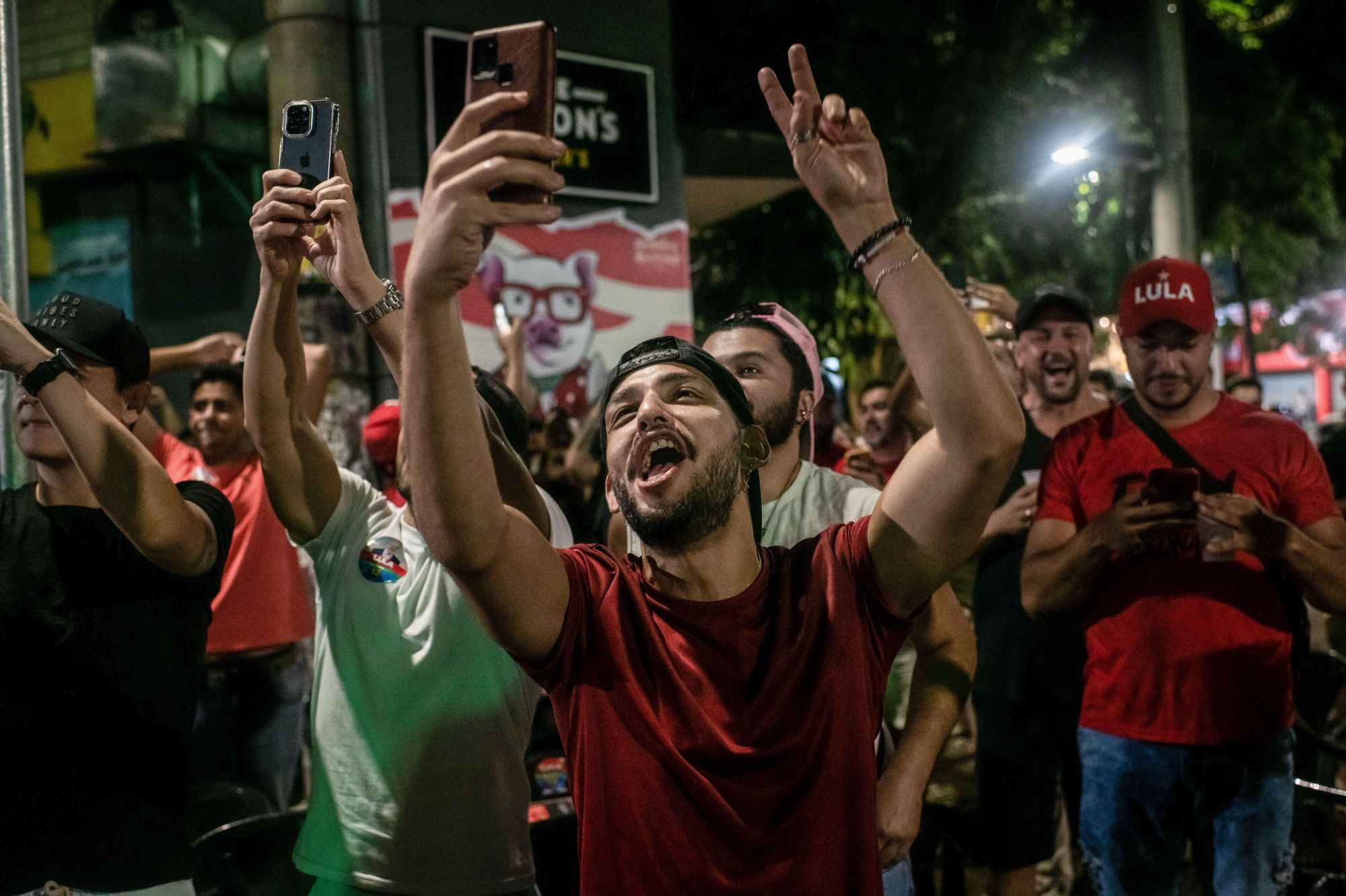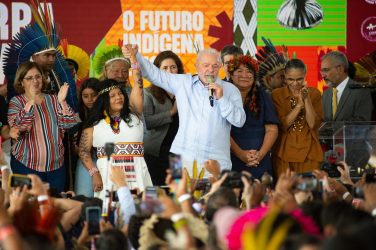I was in Belo Horizonte, the capital of the Brazilian state of Minas Gerais, as the votes were being counted for the nation’s presidential election.
The atmosphere was tense among supporters of former president Luiz Inácio Lula da Silva, after the first round where his lead was much narrower than expected.
As soon as the results were called for the left-wing leader, I could feel a wave of energy from Lula’s supporters. I was following the count with friends on the television and an election app, when we suddenly heard people screaming support from their houses and playing songs to celebrate.
Lula’s supporters rushed into the streets. They were dressed in the traditional Workers’ party red, wearing the Brazilian flag or even just wearing stickers with Lula’s face on them. There was crying, laughing and dancing and many spent most of the night partying here and in other Brazilian cities.
My sister called me asking me to be careful out in the streets. While the energy was mostly positive, there were also some violent incidents. Not far from where I was watching the celebrations, a Lula supporter was killed and four other people shot.
That evening, Lula’s victory speech was about national unity, healing the country, its relationship with other nations and other themes of global relevance, such as the preservation of the Amazon rainforest.
Under Jair Bolsonaro, rainforest deforestation increased massively. In the past year, the Amazon region lost 10,781 square kilometers of forest, an area seven times the size of the city of São Paulo, the largest deforestation rate of the past 15 years.
A day after the election, truck drivers who support Bolsonaro closed over 300 roads in 25 states and in the federal district. These truck drivers and other Bolsonaro supporters asked the army to intervene in what they claimed was a stolen election, in an effort to stop Lula becoming president. Initially, the federal highway police (PRF) did not act to prevent the road blocks.
It wasn’t until two days after the election that sitting president Bolsonaro said he would authorize a peaceful transition, although he did not officially concede. Credible reports argue that Bolsonaro made deals for his post-presidential life before making those remarks. The deal made by the president with his current party is believed to secure him a role in the party leadership, and funding for his housing and lawyers.
Despite these protests, a couple of days after the election, it is already possible to see some changes in Brazil. Politicians who were close to Bolsonaro have already started dialogues with Lula and his team. These politicians include the current president of the congress, Arthur Lira, and the governors of two of the largest Brazilian states – São Paulo and Minas Gerais.
Widespread post-election violence was expected. Some experts were anticipating violence similar to the January 6 raid on the Capitol in the US. But the situation in the first 48 hours was “surprisingly stable”, according to Columbia University academic and commentator Ian Bremmer.
World leaders quickly recognized Lula’s victory, building pressure on Bolsonaro to concede. The former president of Uruguay, Pepe Mujica, was in Brazil during the runoffs. Argentina’s president Alberto Fernández arrived in São Paulo on Monday to congratulate Lula. Other global leaders spoke with the newly elected president on the phone.
There were other positive signals. Some nations that had previously pulled funding out of Brazil announced it would return. As soon as Lula signaled a change of policy on rainforest deforestation, Norway decided to resume its aid for the Amazon (and other nations may follow). It seems possible to be optimistic.
Violent Campaign
From January 2019 to June 2022, political violence has grown 335%. In 2022 political violence has continued to go up. Forty five homicides for political reasons were recorded in the first half of 2022. In the same period, there were over 214 cases of violence against political leaders.
During the campaign, there were reports of violence in the streets and voter suppression. These reports include allegations of violence by members of state police against Lula’s supporters and systematic voter suppression by the PRF (Federal Highway Police) – especially in the northeastern states where Lula had a lead in the first round of the election.
When the election campaigns began, the bellicose rhetoric of Bolsonaro and his closest allies was aimed at the opposition and state institutions.
In the week of the elections there were various reports of violence, including violence against journalists who were covering the events. Most of the attacks were believed to be by “bolsonaristas” targeting Lula’s supporters.
During the election, the PRF conducted 549 traffic operations, including road blocks. These operations violated a court order concerning accessibility to the elections and stopped hundreds of vehicles taking people to vote. There were reports that this was a coordinated action
by Bolsonaro’s government. It is currently under investigation.
While there is worry about how to deal with Bolsonaro’s legacy, for Lula supporters there is beginning to be cautious optimism that this may be the beginning of a new era and life could be about to change for many after the new president takes over on January 1st.
Felipe Tirado is a visiting lecturer in Jurisprudence at King’s College London.
This article was originally published in The Conversation. Read the original article here: https://theconversation.com/brazil-election-what-i-saw-on-the-streets-made-me-cautiously-optimistic-193418












